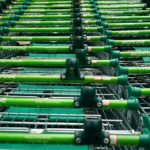SWOT analysis of Nestle (Nestle SWOT)
This is a detailed SWOT analysis of Nestle. It examines the strengths and the weaknesses of Nestlé. It also explores the opportunities and the threats facing the company. Nestlé is a Swiss transnational food and beverage company headquartered in Vevey, Switzerland. It started its journey more than 150 years ago.
Strengths of Nestlé
Nestlé is the world’s largest food and beverage company. It operates in 187 countries around the world. It has 2000 brands consisting of both global and local names. It has 418 factories in 85 countries and benefits from the use of optimal location of production (Nestlé, 2021).
The product portfolio of Nestlé is very wide and comes under a number of categories i.e. baby foods, bottled water, cereals, chocolate & confectionery, coffee, dairy, drinks, food service, culinary, chilled & frozen food, healthcare nutrition, ice cream, and pet care. Such an unrivalled product portfolio helps Nestlé gain competitive advantages over its competitors.
Nestlé has an extremely strong base of suppliers. It works with approximately165, 000 direct suppliers and 695,000 individual farmers worldwide. This enables the company to ensure that the long-term supply of materials is sustainable and any supply chain challenges are dealt with appropriately.
Nestlé has won a good number of prestigious awards over the years in many countries. For instance, Nestlé UK and Ireland won the Responsible Business Award for Environmental Sustainability at Business in the Community’s (BITC) 2018 annual ceremony in London in 2018.
Nestle also tops global marketers ranking in food category for 3rd year running based on the Effie Effectiveness Index 2018. Likewise, Nestlé Malaysia won the ‘Successful International Halal Company’ recognition at the Halal Industry Development Corporation (HDC) Awards in 2018. In 2020, ‘Carnation Vegan Condensed Milk Alternative’ won the ‘Top Launch of the Year for the Canned Food Category’ (Nestlé, 2021).
Weaknesses of Nestlé
Nestlé has been accused of violating codes of ethical marketing. It was also accused of manipulating customers with misleading information about some its products (Neslen, 2018). A study by Changing Markets Foundation has also found that Nestlé was in breach of its own nutritional advice in its advertising campaigns. The company was accused of using sucrose in infant milk formulas in South Africa, while promoted its Brazilian and Hong Kong formulas as being free of sucrose “for baby’s good health”. Likewise, Nestlé is also often criticised for high water usage, selling contaminated food, slave and child labor and using other unethical practices.
While product-recall shows a company’s commitment to the safety of customers, it also shows its weaknesses in supply chain, packaging etc. Nestle had to recall some of its products in the past. For instance, Nestlé UK recalled a batch of Kitkats in 2017 as peanuts and nuts were not declared on the label due to mis-packing at a Nestlé factory in Sofia, Bulgaria (Whitworth, 2017). It also recalled a batch of Alfamino amino acid specialist infant formula in Germany in 2018 as a number of the products contained a significantly increased amount of minerals that could make children sick (Reuters, 2018).
Opportunities for Nestlé
Nestlé can grow further through market penetration. Further growth is possible in categories such as coffee, pet-care, infant nutrition and bottled water in both emerging and developed markets as the company has a significant global market share in these categories.
As more and more customers are becoming health-conscious, Nestlé can introduce more health-based products. Demands for healthy breakfast items are growing, and therefore, introducing new products in this category is worth exploring.
Threats to Nestlé
Threat is the last element to address in ‘SWOT analysis of Nestle’. There are a number of competitors that are considered threats to Nestlé. Some of the top competitors are Hershey’s, Cadbury-Schweppes, Kellogg’s, Danone, Kraft Foods, Unilever, Del-Monte, and Heinz.
Apart from competition, legal challenges also need to be taken into account. For instance, Nestlé was sued a number of times in the past. Nestlé USA was sued in 2018 for allegedly using child and slave labor to make chocolate (Nieburg, 2018). Balch (2021) reports that Nestle is due to face lawsuit in the US over child labour allegations in cocoa plantations in Ivory Coast.
A good amount of Nestlé’s revenue comes from bottled water products. Water is scare and the scarcity continues without any sign of cessation. Therefore, scarcity of water and lack of clean water may pose a significant threat to Nestlé by increasing the cost of product and decreasing the profit margins.
We hope the article on the ‘SWOT analysis of Nestle (Nestle SWOT)’ has been helpful. You may also like reading Marketing mix of Nestle (4Ps of Nestle). Other relevant articles for you are:
Pricing strategies in marketing
Marketing Mix of Pepsi (PepsiCo)
If you liked any of these articles, please feel free to share with others by clicking on the icons provided.
Last update: 19 February 2021
References:
Balch, O. (2021) Mars, Nestlé and Hershey to face child slavery lawsuit in US, available at: https://www.theguardian.com/global-development/2021/feb/12/mars-nestle-and-hershey-to-face-landmark-child-slavery-lawsuit-in-us (accessed 17 February 2021)
Nestlé (2021) About us, available at: https://www.nestle.co.uk/aboutus, (accessed 18 February 2021)
Nieburg (2018) Nestlé sued again for allegedly ‘using child and slave labor to make chocolate’, available at: https://www.confectionerynews.com/Article/2018/02/13/Nestle-sued-again-over-child-labor-in-cocoa-supply-chain (accessed 25 January 2019)
Reuters (2018) Nestle recalls batch of Alfamino infant formula in Germany, available at: https://uk.reuters.com/article/us-nestle-recall/nestle-recalls-batch-of-alfamino-infant-formula-in-germany-idUKKBN1O50I2 (accessed 28 January 2019)
Whitworth, J. (2017) Nestlé UK issues nut allergy product recall, available at: https://www.confectionerynews.com/Article/2017/04/14/Nestle-recalls-Kitkat-bites-after-packing-error (accessed 28 January 2019)
Photo credit: Nestle.com
Author: M Rahman
M Rahman writes extensively online and offline with an emphasis on business management, marketing, and tourism. He is a lecturer in Management and Marketing. He holds an MSc in Tourism & Hospitality from the University of Sunderland. Also, graduated from Leeds Metropolitan University with a BA in Business & Management Studies and completed a DTLLS (Diploma in Teaching in the Life-Long Learning Sector) from London South Bank University.


